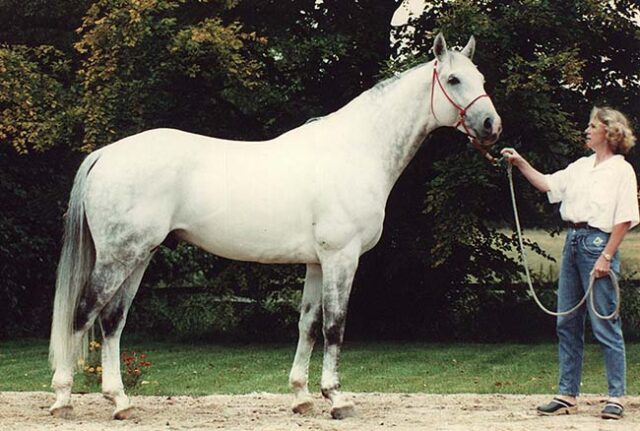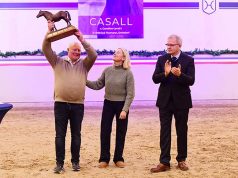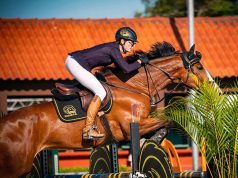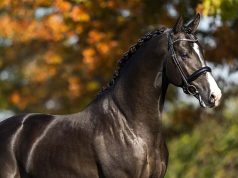By Celia Clarke
Photography: Krista Lindh, Peter Llewellyn, private collections
Continuing our series of highly successful female breeder interviews, this month focuses on Great Britain, and three well-known names who were themselves world-class competitors in the Olympic disciplines – Jennie Loriston-Clark/dressage, Jane Holderness-Roddam/ eventing, and Ann Gustavii/showjumping. A unique trifecta of strong women using their knowledge and experience to produce quality for the coming generations of riders.
Jennie Loriston-Clarke MBE FBHS has been breeding sport horses and ponies at the Catherston Stud (founded by her mother Anne Bullen) for most of her life. She competed in dressage at the Munich 1972, Montreal 1976, Los Angeles 1984, and the Seoul 1988 Summer Olympics and was the first-ever British dressage medallist, winning bronze in 1978 at Goodwood. After her competitive riding career ended she was active as an international eventing and dressage judge at four-star level. Jennie was the first person to be awarded the Queen’s Award for Equestrianism in 2006.
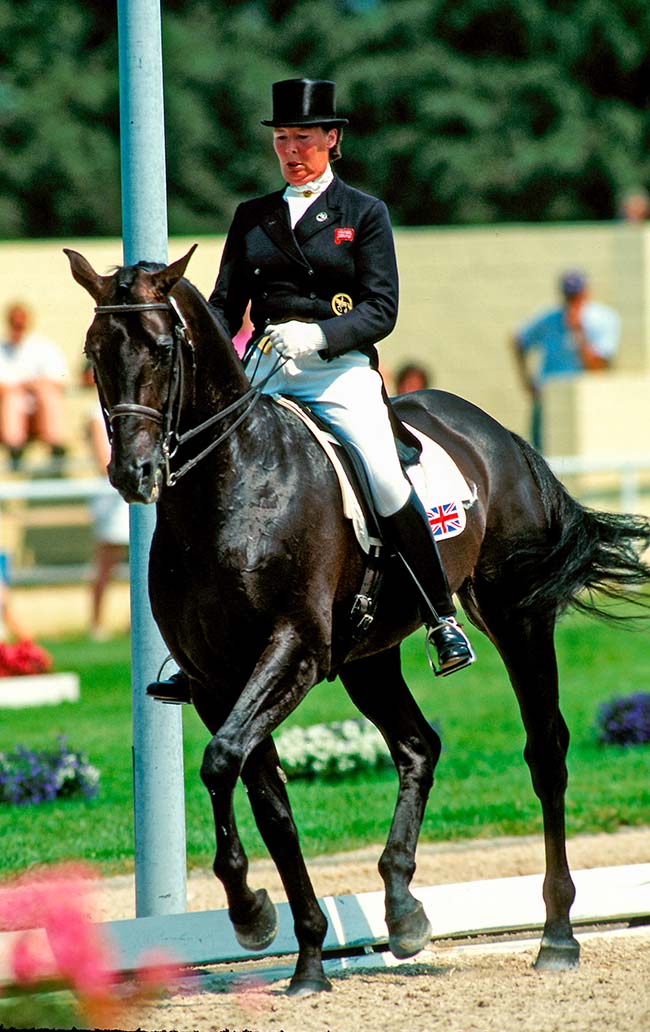
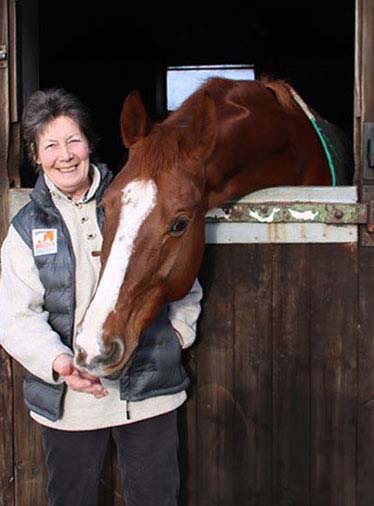
Jane Holderness-Roddam CVO CBE is a British event rider, winning Badminton Horse Trials in 1968, riding Our Nobby, and 1978 with Warrior. She also won Burghley Horse Trials in 1976, again with Warrior, and competed in the Mexico City 1968 Olympic Games, winning team gold for Great Britain, alongside Richard Meade, Reuben Jones and Derek Allhusen.
Along with her late husband Tim, she founded West Kington Stud, which is one of the most successful stallion centres in the UK and a source of many top eventers. Away from the equestrian world she is a lady-in-waiting to HRH The Princess Royal, and became a Commander of the Order of the British Empire (CBE) in 2004, and Commander of the Royal Victorian Order (CVO) in the 2020 Queen’s birthday honours. She was presented with the Queen’s Award for Equestrianism in 2009 and is Jennie Loriston-Clarke’s sister.
Ann Gustavii is a former international showjumping competitor, was a member of the Swedish team and vice-champion Lady Rider in European Nordic Countries.
She found and imported into Sweden many top horses including Any Questions and Irco Marco, both of whom became leading sires for many years. She was also the breeder of many horses that placed and won internationally, including at Olympic, world and Nations Cup level. This resulted in her being ranked 14th best breeder of showjumping horses in the world over a 10-year period.
On the practical side, she is a qualified AI technician, having started up and organised the freezing of stallion semen in Sweden, sending out frozen semen to 80 veterinary stations in Sweden and seven other countries, thus possessing half the Swedish market during the 1990s before moving to England.
Q What led you to become a sport horse breeder? Do you think that being a woman in what was (at least until fairly recently) almost exclusively a man's world was an important factor in your decision?
JLC: I have always loved training horses and was inspired by Madam Hartel to ride in dressage, which then made me interested in breeding from horses that I had ridden as their foals often appeared to inherit many of the traits of their parents. My parents had bred ponies for competing and selling, with Bubbly, their Palomino pony stallion, being the star sire of their era. The economics of business made me interested in training stallions as they then can have an income from their stud fees as well as competing and advertising themselves by their performances as well as their youngstock results. A stallion can cover many mares in a year as well as compete provided it has the temperament to do so, whereas a gelding has no income other than prize money and in the past a mare could not compete and produce foals at the same time, although this can now happen with embryo transfer... To read the complete article you need to be a subscriber
CLICK HERE TO SUBSCRIBE TO BREEDING NEWS
SUBSCRIBERS CAN READ THE COMPLETE ARTICLE BY LOGGING IN AND RETURNING TO THIS PAGE

